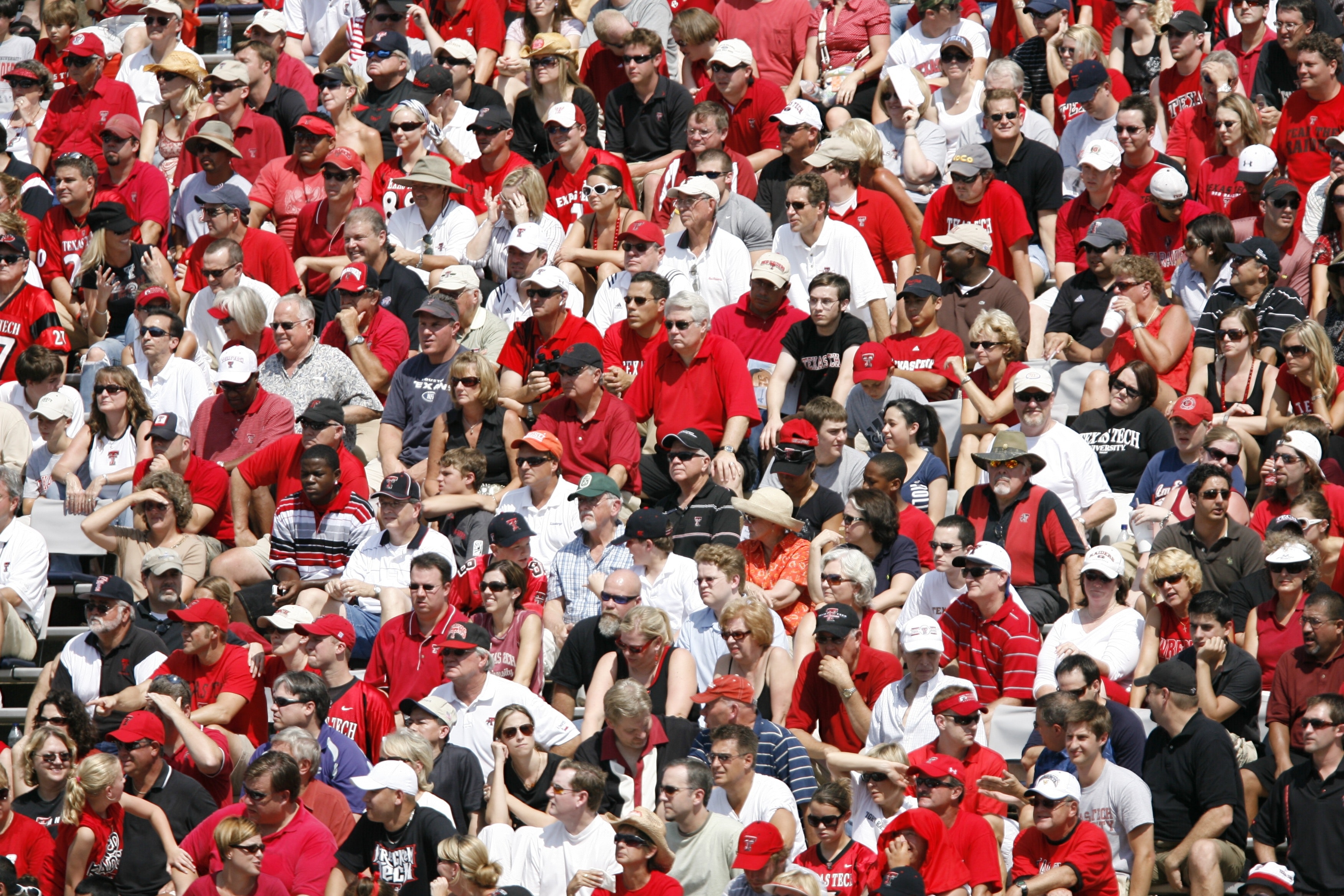News & Insight


However, with vaccines being rolled out there is light at the end of the tunnel for both sports and society at large. And for the business of selling live sports experiences, our data analysis of fan behavior shows that Covid will not have a long-term negative impact on the propensity to go – and pay – to attend watch live sports. On the contrary, the restriction of movement over the summer has created a pent-up demand for live experiences, and we believe there will be an increased desire to attend live sports in a post-vaccine world.
Attendance and ticket-buying behaviour in a world where fans have been permitted despite Covid being present in society has shown propensity to attend live sports events has been strong in 2020.
Major League Baseball’s World Series at the Globe Life Field in Texas, for example, sold out in 90 minutes this fall. With crowds limited to 29% capacity, this meant the opener on October 20 drew a sell-out crowd of 11,388 – despite 5,863 new diagnosed instances of Covid in Texas and 80 Covid-attributed deaths that day.
At the other end of the spectrum, on October 11 New Zealand and Australia lifted rugby union out of its seven-month Test hiatus in front of a mask-free, near-capacity 31,000 spectators at the Sky Stadium in Wellington, New Zealand. The bumper crowd was permitted because the New Zealand government had lifted all limits on public gatherings and social distancing. At time of writing, the remote Pacific island, with a population of about five million, has had less than 2,500 Covid cases and 25 Covid-attributed deaths.
Amazing to see such a large crowd in New Zealand for the Bledisloe Cup.
Hard to believe we’re living in the same world. pic.twitter.com/YfnvNwZr7x
— Cian Tracey (@CianTracey1) October 11, 2020
This demand for live sports is in stark comparison to ‘rival’ providers of live experiences such as movie theatres, which have seen demand plummet. AMC Theatres for instance – the world’s largest movie theatre chain – said that between August and October attendance in the US declined about 85% year-on-year. With sports’ unscripted human drama, every game has the potential to deliver box-office entertainment, but Covid has led to a major shortfall in major studio releases and therefore box-office hits at the movies. AMC last month received a $100m cash injection but still faces the real possibility of bankruptcy.
Post-vaccination, we predict a positive long-term future for live experiences. Covid is causing paradigm shifts in society and how sports, the world’s favorite past time, will be consumed and commercialized will be permanently impacted as a result. The experience economy has been growing exponentially in developed countries over the last decade and, post-vaccine, our data analysis shows that Covid will increase demand for live experiences – and as one of the best sources of live experiences, sports will thrive.
There are five reasons why we make this projection:
1) Collective social experiences are part of human nature
Though humans won’t haphazardly put their lives and their loved ones’ lives at risk, history tells us that after large-scale lockdowns on social interaction, humans go back to being in large groups. Humans are social animals, craving social experiences, collective excitement and a break from day-to-day life. And that means we will continue to seek out safe, live, group experiences once it is safe to do so.
UK soccer attendance and cinema admission data from either side of World War Two – which severely restricted movement and closed down many leisure activities – demonstrates this.
English Football League Attendances Pre and Post WW2
The English Football League, which was suspended from September 1939 to August 1946, generated a cumulative attendance of 27m for its top four leagues in England in the last complete season before the outbreak of war, 1938/39. The first post-war season, however, saw attendances jump by over 8m to 35.4m – which would rise to 41m two seasons later, average year-on-year growth of 38%.
Cinema showed a similar trend. Though unlike football grounds many cinemas were open throughout most of World War Two, cinema admissions hit 1.64bn during the year war ceased, the highest on record to this date. The year before outbreak of war, 1938, admissions were 987m.
UK Cinema Admissions Pre and Post WW2
Pre-Covid, the experience economy was growing. Post-vaccine, we predict the average consumer will have a greater propensity to attend live sports than they did pre-Covid that that means the growth of the experience economy will return to growth.
2) Paid sports experiences are recession-resilient
The World Bank estimates that the global economy will shrink by 5.2% this year – representing the deepest recession since World War Two, with the largest fraction of economies experiencing declines in per capita output since 1870.
This recession will see unemployment grow higher than at any level since at the very minimum the 1930s, putting pressure on disposable income, and as a result, leisure spend. However, our research shows this century sports experiences have been recession-resilient – and are one of, if not the, most recession-proof live experiences.
Data from North America – which is mirrored in other major economies – demonstrates this. Total cumulative ticketing revenue generated by the NFL, NBA, MLB and NHL grew annually every year between 2007 and 2019 bar two years: 2010 (due to the NHL’s Phoenix Coyotes’ bankruptcy ahead of the 2009/10 season which saw the team’s annual attendance fall by over 118,000) and 2014, which was due to the NHL lockout of 2012/13 and the total number of league games being reduced by 41.5%.
However, the OECD’s Consumer Confidence Index (CCI) – which tracks intention to spend on major purchases in the next 12 months – grew only seven years during the period, decreasing every year between 2007 and 2014. This was instigated by the global financial crisis that started in 2007.
North American Gameday Revenue (Year-on-Year % Growth)
We have confidence therefore that consumers will continue to spend on live sports experiences despite the financial climate. Results of the small number of recent major ticket sales campaigns from across the world that have taken place to date support this view, the most prominent of which has been rugby union and the 2021 British & Irish Lions Tour to South Africa.
Following a ticket ballot that closed in September, SA Rugby declared it had received 323,964 applications for tickets across eight matches, which was a new record for a Lions Tour. That same month, the OECD said the world economy would shrink by 4.5% in 2020.
3) Covid will accelerate investments in service and stadia
The growth of the experience economy this century has seen event promoters reach by offering new, differentiated live experiences that stand out from the crowd. For sports, this means investing great days out – providing a ‘festival feeling’ beyond the sports spectacle on the pitch – and matching customer expectations around event experiences such as ingress and egress, queuing, food and drink options and toilet availability.
Sports venues on the whole – bar those built this century – have been built as theatres of sports rather than theatres of entertainment. For many loyal sports fans, whose primary interest at a live event is what’s happening on the pitch, queues, limited food and beverage options and inadequate toilets are a side issue. However, for non-loyal sports fans – including vast numbers of women and children – they are a barrier.
Covid is accelerating investments in service and stadia as to be able to host sport in the pre-vaccine period, they have forced to invest in improving the fan experience.
.@WestHam fans will be offered a fully cashless experience when they return to @LondonStadium this weekend: https://t.co/VG8brtURMn #stadium #WHUFC #PremierLeague
— TheStadiumBusiness (@stadiumbusiness) December 2, 2020
Recent examples of this include the introduction of cashless payments (the London Stadium, for example, installed high-density Wi-Fi to enable it to go completely cashless before welcoming back fans on December 5); digital tickets (the NBA’s Utah Jazz has transitioned to full contactless mobile ticketing with self-service digital scanning ahead of the 2020/21 season); and mobile ordering of concessions (MLB World Series winners the LA Dodgers integrated 780 cloud-based point-of-sale systems in October to allow fans to order food and beverage).
These investments will continue into 2021 and will make sports experiences more attractive to non-loyal sports fans.
4) Covid will accelerate ticketing changes
Season tickets are the primary gameday revenue stream for most league-based sports teams, guaranteeing home tickets – in addition to other perks such as priority access to limited away tickets – for an upfront, annual fee. However, with uncertainty around the amount of games fans are able to attend, the structuring, pricing and marketing of season tickets has been significantly challenged since March 2020.
With this uncertainty still likely to remain into 2021, rights-owners are being forced to reinvent their ticketing products, creating new flexible options that enable fans to make last-minute travel decisions; allow simple and legal ticketing trading for tickets they cannot use; or enable fans to pick and choose games without a season-long commitment.
These products better reflect the demands of younger fans whose purchase habits require flexibility; these are, after all, the same generations who have become accustomed to flexible options for their TV subscriptions, food deliveries and shaving products.
Ahead of the 2021 season scheduled to start in April, for example, the MLB’s Pittsburgh Pirates went on sale with a new ‘Bucs Flex Plan’ product – a mobile-only, 10-ticket voucher package that allows fans to mix and match games and ticket totals across the season. The product, which went on sale on Cyber Monday (December 2) and costs either $199 (upper bowl) or $399 (lower level), complements season-ticket packages giving full-season options.
The Bucs Flex Plan is the perfect gift this holiday season!
Get a free Pirates Nutcracker for a limited time with purchase.
— Pirates (@Pirates) November 30, 2020
Though clearly there is still an important and critical market for ‘all-inclusive’ products giving fans access to a complete season or schedule of fixtures – these new, flexible ticket products at different price points will stick, opening up sports to a wider audience. And Covid is accelerating their development.
5) Covid will give us more data
Attendances for professional sports in the UK hit an all-time record 75.1m in 2019. However, according to our analysis, at the average UK sports event held in 2019 only a fifth of people inside the venue were known.
Though sports properties have a detailed insight into the purchasers of sports tickets, often attendees at events – primarily those in a group who have their ticket purchased for them by someone else – are unknown, meaning the rights-owner doesn’t have a direct relationship with them.
However, mechanisms that are being introduced due to Covid-19 – such as digital tickets assigned to an individual to enable track and trace and food and drink pre-orders – will enable rights-owners to get a better insight into exactly who is in the stadium, and critically a direct relationship with a previously unknown fan.
This relationship will give rights-holders a greater marketable database and deeper insight into the behaviors of customers – ultimately enabling them to take more people down a customer funnel, taking them from a passive fan to a loyal fan.
GET IN TOUCH

